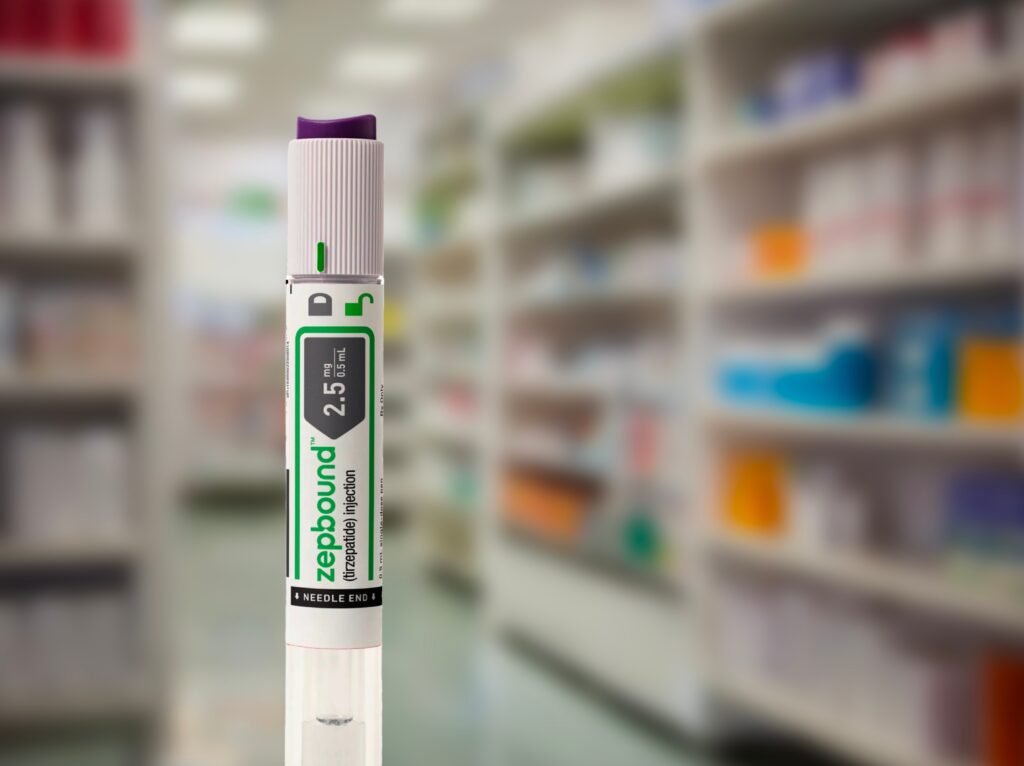Eli Lilly has announced it is slashing the price of Zepbound (tirzepatide) — its hugely popular GLP-1/GIP-1 weight-loss medication — and is introducing higher-dose vials of it.
The initiative aims to provide more affordable options for patients paying out-of-pocket and to counter the growing market of compounded versions of weight-loss drugs.
Eli Lilly has unveiled 7.5 mg and 10 mg single-dose vials of Zepbound, each priced at $499 for a month’s supply when refilled within 45 days through Lilly’s new Zepbound Self Pay Journey Program available on its direct-to-consumer website LillyDirect. Outside of the program, the vials are regularly priced at $599 and $699, respectively.
LillyDirect connects patients with an independent telehealth provider that can prescribe eligible medications. For Lilly medications, the platform also offers home delivery through a third-party online pharmacy, ensuring prescriptions are filled and shipped directly to patients.
Additionally, the company has lowered the prices of its existing 2.5 mg and 5 mg vials by $50 to $349 and $499 per month, respectively.
Zepbound is now available in single-dose pens (autoinjectors) with 0.5 mL doses of 2.5 mg, 5 mg, 7.5 mg, 10 mg, 12.5 mg or 15 mg. The recommended maintenance doses are 5 mg, 10 mg or 15 mg, administered subcutaneously once weekly. Patients start with a 2.5 mg dose for four weeks before increasing to 5 mg.
Eli Lilly said the vials will increase the availability of the medication, as they are easier to produce than autoinjector pens, which cost around $1,000 per month before insurance.
XTALKS WEBINAR: Innovation Labs: Accelerating Innovation at the Intersection of Pharmaceutical Research and Digital Health
Live and On-Demand: Wednesday, March 26, 2025, at 1pm EDT (10am PDT)
Register for this free webinar to discover how innovation labs fuel cutting-edge advancements in wearable technologies, AI-driven insights and rapid prototyping to enhance clinical trial efficiency.
The reduced pricing for single-dose vials will help patients paying out-of-pocket, as well as those on Medicare or employer-sponsored health plans that exclude obesity treatments.
The weight-loss drug market has seen a surge in demand, leading to the emergence of compounded versions of medications like Zepbound and Novo Nordisk’s Wegovy (semaglutide). These compounded drugs, often sold at lower prices, give the original products some market competition.
However, the FDA removed Zepbound and Wegovy from the shortage list in December last year, requiring compounding pharmacies to cease production of their copies by next month.
Following Zepbound’s removal from the list, the FDA said the shortage of rival Novo Nordisk’s GLP-1 semaglutide products Ozempic and Wegovy has also been resolved.
Related: New Zepbound TV Commercial Inspires ‘Change’
Lilly’s pricing adjustments are designed to make Zepbound more accessible to patients without insurance coverage, addressing a significant barrier to treatment.
“Every major medical organization and establishment recognizes obesity as a chronic disease, yet insurance and federal programs do not systematically cover people living with obesity for medical care — this needs to change,” said Patrik Jonsson, executive vice president and president of Lilly Cardiometabolic Health and Lilly USA.
“Lilly is committed to working with all parties to solve this problem, and in the meantime, we’ll continue to implement new options that improve the affordability and availability of our safe, approved and studied Zepbound for patients who are being asked to pay out-of-pocket.”
The broader industry landscape is also impacted, as telehealth companies like Hims & Hers offering compounded weight-loss medications may need to adjust their strategies in response to regulatory changes and increased competition from pharmaceutical manufacturers.
Hims & Hers, which sells compounded semaglutide, saw its stock drop 25% this month after the FDA declared semaglutide shortages to be over. The company is still expecting a good year, projecting its weight loss business to hit $725 million in 2025.
If you want your company to be featured on Xtalks.com, please email [email protected].












Join or login to leave a comment
JOIN LOGIN